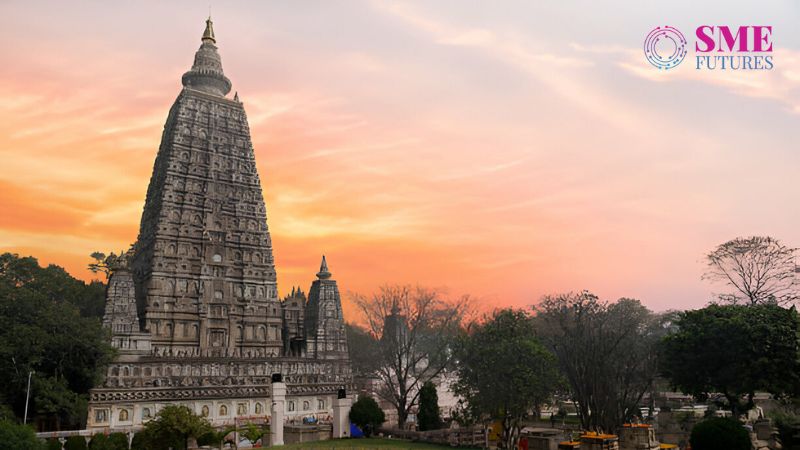Spiritual tourism gets boost: The Union Budget 2024 has set the stage for a transformative era in Indian tourism, with a particular focus on enhancing the appeal and infrastructure of sacred sites. The development of temple corridors such as the Vishnupad and Mahabodhi temples in Bihar is poised to unleash a wave of economic opportunities, turning these spiritual centers into significant economic hubs.
Finance Minister Nirmala Sitharaman emphasised the strategic importance of temple tourism in her budget speech, highlighting its potential to create jobs, stimulate investments, and unlock economic opportunities across various sectors. The budget’s increased allocation of ₹2,479.62 crore for the tourism sector, up from ₹1,692.10 crore in the previous budget, signals the government’s commitment to leveraging India’s rich spiritual heritage.
The Kashi Vishwanath Model
The budget’s blueprint draws inspiration from the successful development of the Kashi Vishwanath temple corridor in Varanasi, which has already demonstrated the power of well-planned investment in religious sites. The comprehensive development of the Vishnupad temple corridor and the Mahabodhi temple corridor is expected to replicate this success, transforming these sites into world-class pilgrim and tourist destinations.
Vishal Kamat, Executive Director of Kamat Hotels India Limited, observes, “The emphasis on temple tourism in the budget is commendable. We have witnessed the grassroots impact of such initiatives, benefiting everyone from tea vendors to local grocers when we recently opened our first Ira by Orchid Hotels in Ayodhya. Expanding these efforts to other sacred sites like Kashi Vishwanath and Ayodhya can help uplift entire communities, ensuring that every individual in these holy regions reaps the benefits.”
Economic multiplier effect
The development of temple corridors is not just about improving infrastructure but also about creating a multiplier effect that stimulates local economies. The influx of tourists is expected to boost demand for hospitality services, local crafts, and regional delicacies, thereby providing a livelihood for thousands of people in these regions.
Saurabh Gahoi, Senior VP of Ramee Group of Hotels, emphasises this potential: “The government’s emphasis on highlighting India’s spiritual heritage is expected to significantly boost international and inbound travel, which is vital for the growth of our industry. By promoting spiritual tourism, the budget aims to attract more visitors and elevate India’s standing on the global tourism map.”
The economic benefits extend beyond tourism. As temple towns become more accessible and attractive, they are likely to attract investments in ancillary industries, including transportation, retail, and cultural enterprises. This holistic approach ensures that economic benefits percolate to all levels of society, from street vendors to hotel operators.
Skill development and employment
One of the standout features of the budget is its focus on skill development and employment generation, particularly in the hospitality and tourism sectors. The government aims to create job opportunities through skill-based programs, ensuring that local communities are equipped to meet the demands of a burgeoning tourism industry.
Pranav Rungta, Co-Founder and Director at Nksha, notes, “Finance Minister Nirmala Sitharaman’s focus on establishing skill-based programs for the hospitality and restaurant industries is a positive step towards enhancing the sector’s contribution and smooth operation. However, while these measures are appreciated, we had hoped for more targeted support for the restaurant industry.”
Temple economy
The temple corridor initiative represents a strategic confluence of cultural preservation and economic development. By investing in India’s spiritual heritage, the government is not only safeguarding the country’s rich traditions but also unlocking new avenues for economic growth.
Anuj Rathi, Chief Business and Growth Officer at Cleartrip, sums it up well: “Budget announcement is a welcome move that promises to strengthen India’s position as a global hub for spiritual tourism. The continued investment in developing corridors will create a multiplier effect, stimulating the local economy and generating job opportunities. This initiative will add to the momentum that the industry gained from the Ayodhya boom earlier this year.”
As these plans unfold, the vision of turning sacred sites into vibrant economic centers seems not just feasible but inevitable, heralding a new chapter in India’s economic and cultural story.











